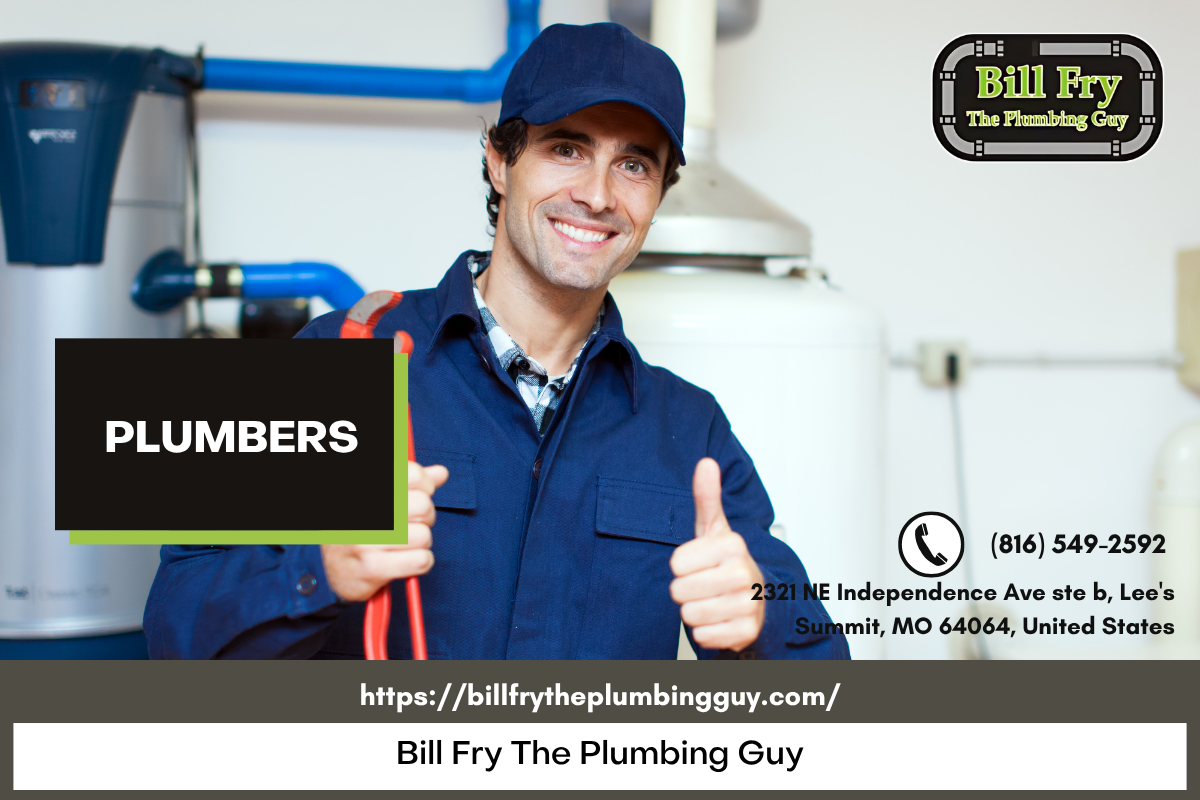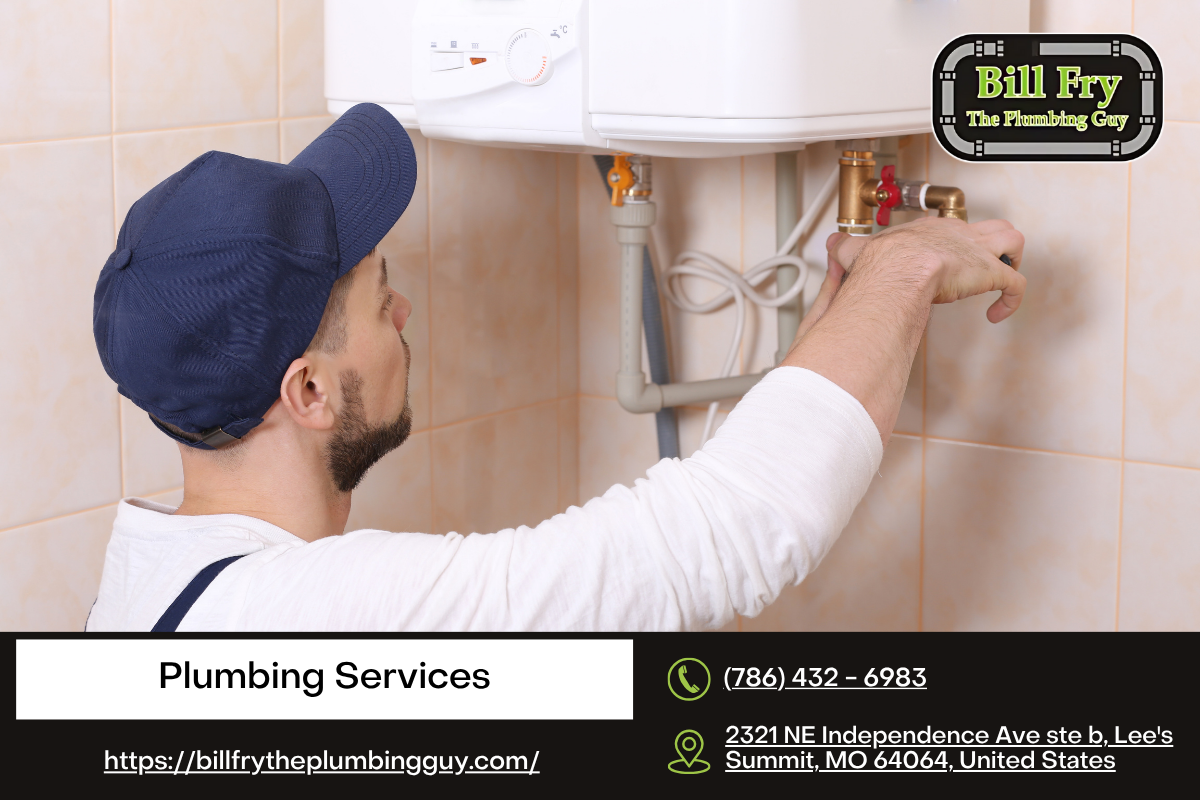

Introduction
Navigating the intricate world of plumbing can be daunting for any homeowner, especially in a unique locale like Lee's Summit. Whether you're dealing with an unexpected leak, a stubborn clog, or deciding when to call in the professionals, understanding how to avoid common plumbing pitfalls is vital for maintaining your home’s integrity and your peace of mind. In this comprehensive guide, we will delve into essential practices and tips that will help you sidestep these plumbing dilemmas. From choosing reliable plumbing services to understanding the intricacies of your home's plumbing system, we aim to equip you with the knowledge you need.
How to Avoid Common Plumbing Pitfalls in Your Lee's Summit Home
Understanding the specific challenges that your home might face is the first step towards effective plumbing management. Here are several strategies to ensure that you can tackle potential issues before they escalate:
Understanding Your Home’s Plumbing System
What Makes Up a Typical Plumbing System?
A standard plumbing system consists of various components such as pipes, fixtures, valves, and more. Understanding these parts helps you identify problems early on.
- Pipes: Responsible for transporting water. Fixtures: Faucets, sinks, toilets—these are what you use daily. Valves: Control water flow and pressure.
Common Plumbing Issues in Lee's Summit Homes
What Are Some Frequent Problems Homeowners Face?
From frozen pipes during winter months to sewer backups during heavy rains, being aware of common issues can help you prepare.
- Leaky Faucets: Often overlooked but can waste gallons of water. Clogged Drains: Regular maintenance can prevent this headache.
The Importance of Regular Maintenance
Why Should You Schedule Routine Checks?
Just like your car needs regular oil changes, your plumbing system requires check-ups too.
Identify small leaks before they become major issues. Ensure proper drainage and avoid clogs.Choosing Reliable Plumbers in Lee's Summit
What to Look For in a Plumber?
When searching for a plumber near you, consider their experience and customer reviews.
- Experience: Look for established plumbers who know local codes. Reviews: Online platforms provide insight into customer satisfaction.
Benefits of Hiring Local Plumbers
Why Choose Local Over National Companies?
Local plumbers often offer personalized service and better response times.
Knowledge of local building codes. Familiarity with specific issues common in Lee's Summit homes.DIY vs Professional Plumbing Services
When Is It Safe to DIY?
Some minor repairs may be within your skill set; however, knowing your limits is crucial.
- Small leaks can often be fixed with tape or sealants. Clogs can sometimes be cleared using a plunger or snake.
When Should You Call Professional Plumbing Services?
For complex issues, it’s always best to consult with experts:
Major pipework changes should be left to professionals. If multiple drains are clogged simultaneously—a sign of a bigger issue.Signs That You Need Immediate Plumbing Help
What Are Red Flags Indicating Major Problems?
Recognizing warning signs quickly can save you from extensive damage:
- Unusual noises from pipes. Water bill spikes without increased usage.
Emergency Situations: What Constitutes A Plumbing Emergency?
Certain situations require immediate professional intervention:
Burst pipes causing flooding. Sewage backups posing health risks.Preventative Measures: A Key Component in Plumbing Care
What Simple Steps Can You Take Today?
Adopting preventative measures ensures long-term health for your plumbing system:
Regularly inspect visible pipes for signs of wear. Use drain covers to prevent debris build-up.Seasonal Checks: Why They Matter?
Each season presents unique challenges; thus regular checks are critical:
- Winter: Insulate exposed pipes against freezing temperatures. Spring: Inspect gutters and downspouts after heavy rains.
Understanding Water Pressure: The Silent Issue
How Does Water Pressure Affect Your System?
High or low water pressure can cause significant issues over time:
- Low pressure may indicate clogs or leaks. High pressure can lead to burst pipes.
How Can You Monitor Water Pressure Effectively?
Investing in a simple water pressure gauge allows homeowners to keep track:
Ideal household water pressure ranges from 40-60 psi (pounds per square inch). Regular monitoring helps catch irregularities early on.Common Myths Surrounding Plumbing
What Are Some Misconceptions Homeowners Have About Plumbing?
Understanding myths versus facts helps homeowners make informed decisions:
Myth: All plumbing problems are DIY fixes.- Fact: Some require professional expertise for safe resolution.
- Fact: They may damage pipes over time—opt for natural alternatives instead!
The Role of Technology in Modern Plumbing Solutions
How Is Technology Revolutionizing Plumbing Services?
From smart faucets to leak detection systems—technology offers new solutions:
Smart home devices monitor water usage and detect leaks instantly. Video camera inspections help diagnose deep-rooted plumbing issues without invasive procedures.Eco-Friendly Practices Every Homeowner Should Embrace
What Are Sustainable Choices You Can Make Today?
Being environmentally conscious not only benefits the planet but also reduces costs:
Install low-flow showerheads and faucets—save water without sacrificing pressure! Consider tankless water heaters—more efficient and take up less space!FAQs About Common Plumbing Pitfalls
1. What should I do if my toilet is constantly running?
A running toilet often indicates a faulty flapper valve or fill valve that needs replacement—an easy fix!
2. How often should I have my plumbing inspected?
Annual inspections are recommended; however, homes over ten years old may benefit from biannual checks due to aging infrastructure.
3. What causes low water pressure throughout my home?
Low pressure could stem from clogs within the piping system or issues with municipal supply; investigating both aspects is crucial!
4. Is it safe to use chemical drain cleaners regularly?
While effective short-term solutions exist, frequent use can corrode pipes—consider safer alternatives like baking soda and vinegar instead!
5. What are some telltale signs I need professional help?
Signs include persistent leaks despite DIY attempts, multiple slow drains across different areas of the house, or strange sounds emanating from piping https://pastelink.net/owxahnem systems.
6. How do I find reliable plumbers in Lee's Summit?
Check local directories for licensed contractors with positive reviews; personal recommendations also provide valuable insights into quality service providers!
Conclusion
To wrap it all up, avoiding common plumbing pitfalls in your Lee's Summit home doesn’t have to feel overwhelming! By understanding your system better and adopting preventative measures while embracing technology advancements available today—all while knowing when it's time to call experts—you'll save yourself both time and money down the line! Remember that choosing skilled plumbers like those found within our community contributes significantly towards maintaining healthy living environments where families flourish! So don't hesitate—take charge now by implementing these strategies today!